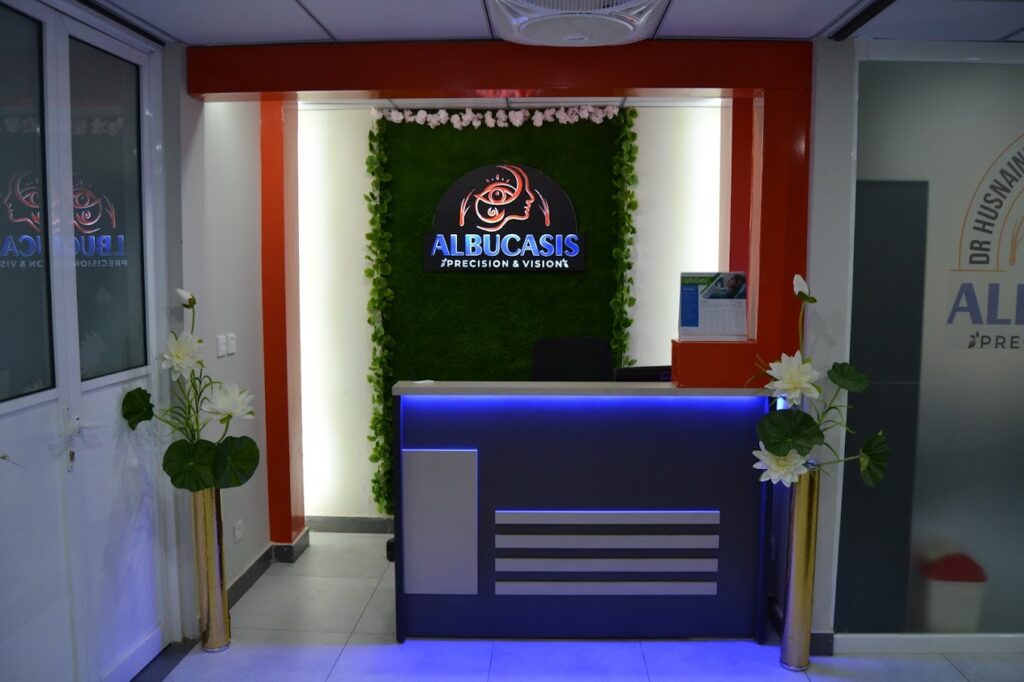Jaw Surgery: Everything You Need to Know
Jaw surgery, also known as orthognathic surgery, is a corrective surgical procedure that realigns the jaw and teeth to improve function, appearance, and overall facial harmony. It is performed for both medical and cosmetic reasons, helping individuals with bite issues, jaw misalignment, or facial asymmetry.
If you’re considering jaw surgery, choosing the best plastic surgeon in Islamabad and Rawalpindi is crucial for ensuring safe, effective, and natural-looking results.
Ideal Candidates for Jaw Surgery
Jaw surgery is ideal for individuals who:
- Have jaw misalignment affecting their bite or speech.
- Experience chronic jaw pain, TMJ disorders, or difficulty chewing.
- Have a protruding, receding, or asymmetrical jawline.
- Suffer from sleep apnea due to airway obstruction.
- Are in good general health with fully developed facial bones (usually after age 18).
Why Do You Need Jaw Surgery?
Jaw surgery can improve both functionality and aesthetics:
Medical Reasons
- Corrects malocclusion (bite issues) for proper chewing and speech.
- Treats Temporomandibular Joint (TMJ) disorders to relieve jaw pain.
- Helps with sleep apnea by opening the airway for better breathing.
- Repairs jaw fractures or congenital deformities.
Cosmetic Reasons
- Improves facial symmetry and jawline definition.
- Corrects a weak or prominent chin.
- Enhances overall facial harmony for a more attractive appearance.
To determine the right treatment plan, consult the best plastic surgeon in Islamabad and Rawalpindi for a professional assessment.
Types of Jaw Surgery
Jaw surgery is customized based on individual needs and concerns:
1. Upper Jaw Surgery (Maxillary Osteotomy)
- Corrects overbites, open bites, or asymmetry in the upper jaw.
- Commonly used to fix cleft palate or facial deformities.
2. Lower Jaw Surgery (Mandibular Osteotomy)
- Treats underbites, overbites, and receding jawlines.
- Repositions the lower jaw forward or backward for proper alignment.
3. Chin Surgery (Genioplasty)
- Reshapes the chin for better balance with the rest of the face.
- Can be combined with other jaw surgeries for enhanced results.
4. Double Jaw Surgery (Bimaxillary Osteotomy)
- Involves surgery on both the upper and lower jaw.
- Used for severe misalignment or significant facial asymmetry.
The Procedure of Jaw Surgery
1. Consultation and Treatment Planning
- The plastic surgeon and orthodontist evaluate your jaw structure.
- X-rays, CT scans, and digital imaging are used to plan the procedure.
2. Pre-Surgical Orthodontics
- Braces are often required before surgery to align the teeth properly.
- This phase can last 6-12 months before the actual surgery.
3. Surgical Procedure
- Performed under general anesthesia in a hospital setting.
- The surgeon makes incisions inside the mouth to reposition the jawbones.
- Plates, screws, or wires are used to secure the new jaw position.
4. Recovery and Healing
- Swelling and discomfort last 2-3 weeks, with full healing in 6-12 months.
- Soft food diet and speech therapy may be required during recovery.
What Are The Benefits of Jaw Surgery?
- Improves chewing, speaking, and breathing.
- Enhances facial symmetry for a balanced look.
- Corrects jaw pain and TMJ disorders.
- Boosts self-confidence with a well-defined jawline.
- Long-lasting results with a natural appearance.
Limitations of Jaw Surgery
- Requires months of pre-surgical orthodontic treatment.
- Recovery takes time—full results may take up to a year.
- Not a weight-loss procedure—only improves jaw structure.
- Some cases may require additional procedures for best results.
What Are The Risks of Jaw Surgery?
While jaw surgery is generally safe, potential risks include:
- Swelling, bruising, and temporary numbness.
- Infection or delayed healing, though rare with proper care.
- Jaw stiffness or difficulty speaking during recovery.
- Minor asymmetry, which may require revision surgery.
To minimize complications, always choose the best plastic surgeon in Islamabad and Rawalpindi with expertise in jaw reconstruction and orthognathic surgery.
Cost of Jaw Surgery
The cost of jaw surgery depends on various factors, including:
- The type of surgery required (upper, lower, or double jaw surgery).
- The complexity of the procedure and hospital stay.
- Surgeon’s experience and clinic reputation.
On average, the cost of jaw surgery in Islamabad and Rawalpindi ranges from PKR 500,000 to PKR 1,500,000, depending on the extent of correction needed. Consultation with a skilled plastic surgeon will help determine an accurate price based on your specific condition and treatment plan.


